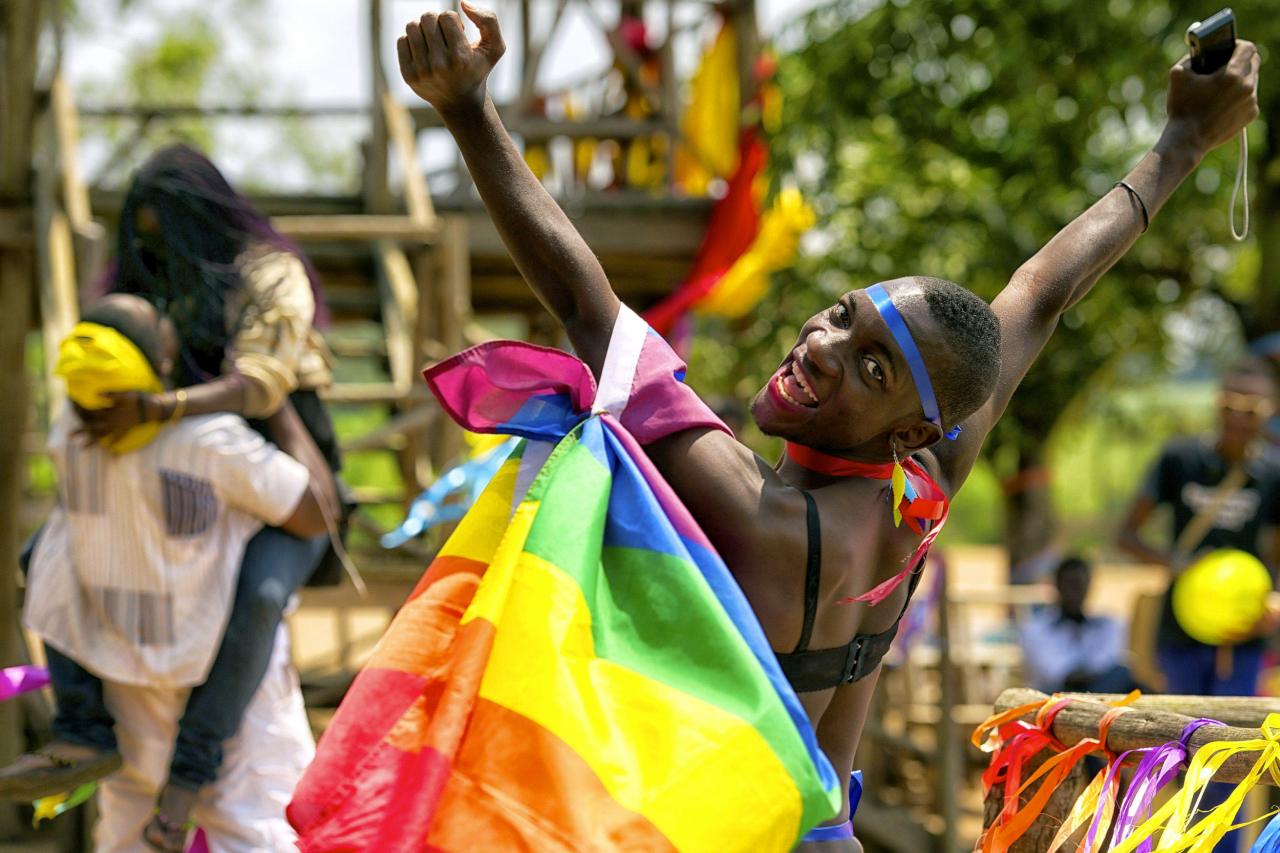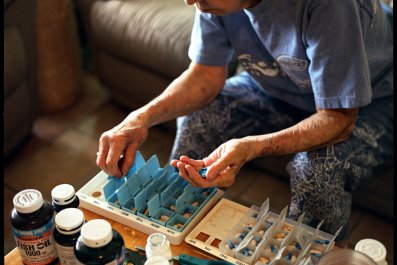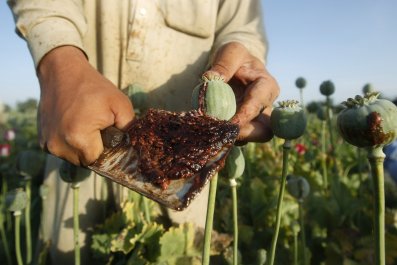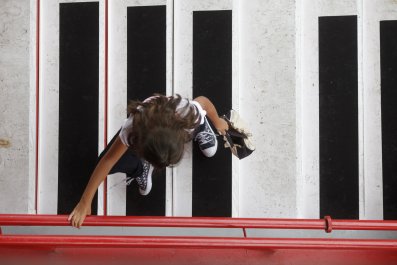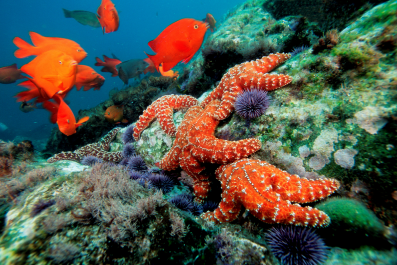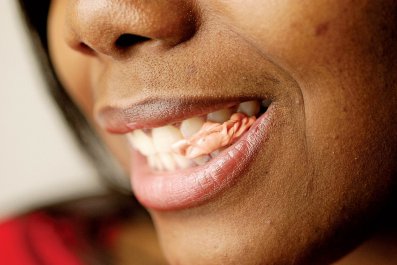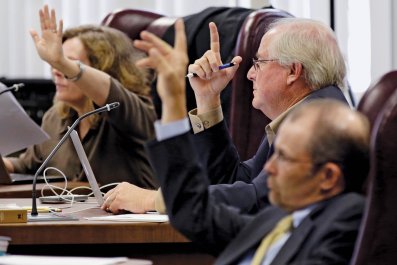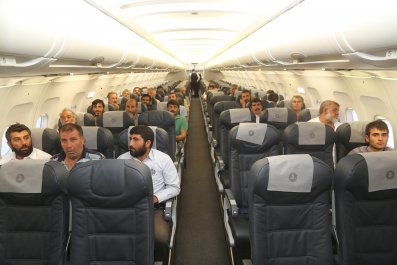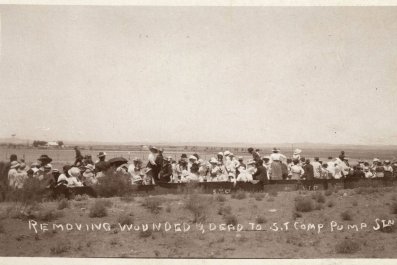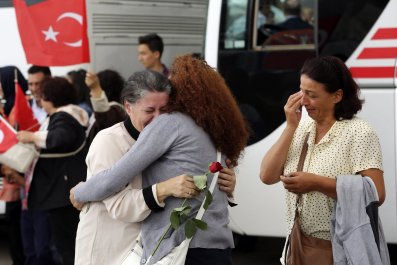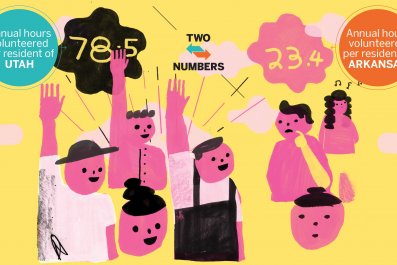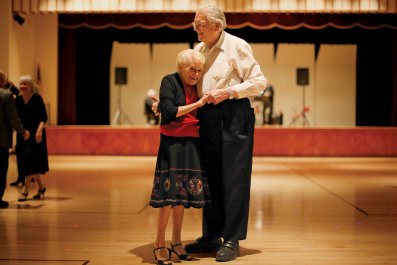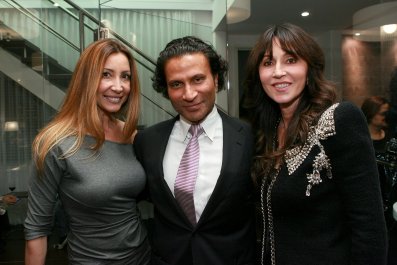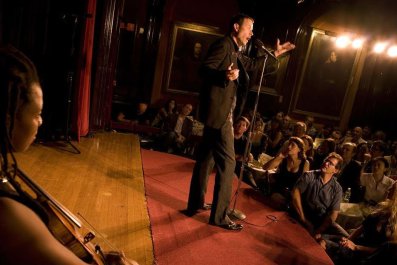In the summer of 2001, Ugandan police arrested a series of gay men in Kampala, and beat them until they exposed other gay men in the capital. As a result of the crackdown on the gay community, John Bosco, who worked in currency trading at a local bank, heard his name in a police bulletin on the radio. He immediately fled to the countryside, where he spent three months subsisting on bread, only venturing outside to use a shared toilet at night. Too afraid to withdraw his savings from the bank because he would have to show identification, he sold his car and eventually made his way to the UK with just a pair of gym trousers, a T-shirt and a photo of his boyfriend.
When he reached British soil, Bosco assumed his nightmare was over. In reality, though, the long, arduous process of claiming asylum as a gay man would present a series of new hurdles and just as much uncertainty. Immigration officials strip-searched him and detained him in a Portsmouth detention centre, where he lived alongside homophobic refugees from the Caribbean and Africa for four months. To test Bosco's claim that he was gay, officials asked him a series of invasive questions. "Sometimes they'd ask if you had oral or anal sex, if you wore a condom, and if you watched pornography before having sex with someone," he says. "It makes you feel worthless and disgusting, and you start to lose confidence in yourself."
Bosco is not alone in his escape from a homophobic country, or in the treatment he endured upon arrival in Britain. The United Kingdom has recognised asylum claims based on sexual orientation and gender since 1999, offering hope to lesbian, gay, bisexual, transgender and intersex (LGBTI) people who live in the 81 jurisdictions around the world that currently criminalise consensual same sex acts. The death penalty remains on the books in five countries – Iran, Saudi Arabia, Sudan, Yemen and Mauritania – as well as in parts of Nigeria and Somalia.
"Even where these laws are not actively enforced, they create a persecutory environment," says Jonathan Cooper, chief executive of the Human Dignity Trust, which works to decriminalise homosexuality abroad. "These criminal laws are designed to shame and humiliate and make individuals invisible and voiceless.
The repercussions are often extreme. In August 2013, Dwayne Jones, a transgender 16-year-old, attended a street party in women's clothing. A mob beat and stabbed him before running over his body with a car. In February, a 50-strong mob in Nigeria dragged four gay men onto the streets of Abuja and beat them with broken furniture, whips, and nail-studded clubs. They said they were "cleansing the community". In Jamaica, Uganda, South Africa and Zimbabwe, lesbians and bisexual women face the threat of so-called "corrective rapes".
For immigration officials, the consequences of deporting a legitimate asylum seeker are high, but so is the difficulty of assessing whether an LGBTI applicant is actually LGBTI. Trusting self-disclosure alone opens the system up to potential abuse. At the same time, asking certain questions and accepting certain evidence may violate the refugee's dignity and pile more abuse on the abused. Guidance will come later this year when the Luxembourg-based European Court of Justice, which oversees asylum policy for EU member states, rules on how far authorities can go to determine whether someone is who he or she claims to be.
Authorities do not always get the balance right. As recently as 2011, officials in the Czech and Slovak Republics attached electrodes to male and female genitals to see if pornography activated blood flow to the region. In the UK, lawyers acting on behalf of asylum seekers have at times submitted DVDs with footage of their client having a same-sex encounter to prove their sexual orientation.
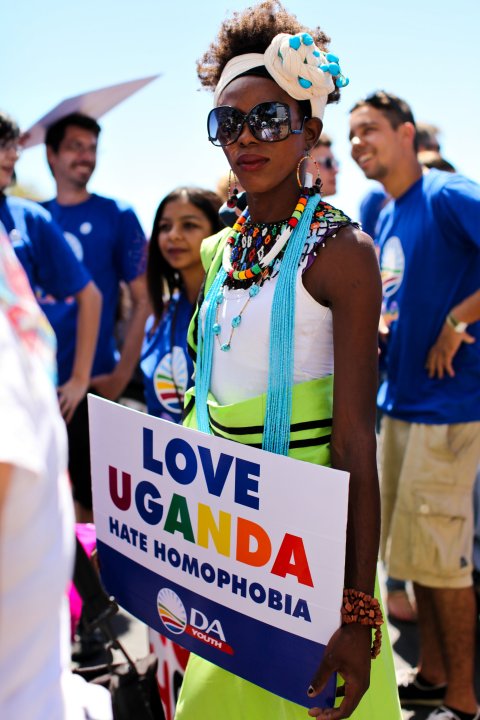
In March, Theresa May, the UK's Home Secretary, ordered a review of gay asylum policy in the country after confidential Home Office documents revealed some of the humiliating questions asylum seekers face. In one five-hour interrogation, case workers asked a male asylum seeker a series of lurid questions, which included, "When x was penetrating you, did you have an erection?" and "Did x ejaculate inside you?" The results of that review will be released imminently.
This fixation on sexual conduct glosses over the reality that being gay encompasses much more than sex. It's one reason that May has insisted that an asylum seeker's identity be established "through questions about sexual orientation, not sexual behaviour".
"The majority of individuals are not caught in a sexual act by religious police," says S Chelvan, a barrister who specialises in asylum cases. "It's the fact that they don't conform to a heterosexual narrative that makes them identifiable." With that in mind, Chelvan has developed the Difference, Stigma, Shame, Harm (DSSH) guidelines, which have been endorsed by the United Nations High Commissioner for Refugees, and been tested by authorities in Cyprus, Finland and Germany, among other countries. His system consists of trigger questions that lead to further investigation, and that don't stray into the pornographic.
The first question he poses to clients is, "When did you realise you were different?" "The majority of LGBT people can identify a narrative of difference that predates sexual awakening," he says. "Straight boys cannot do that."
It's a simple starting point that cuts across borders. Bosco, the Ugandan asylum seeker, experienced difference from the age of six, when he wanted to dress up like his sister and desperately believed an old wives' tale. "It said if you sleep under the sun then you will turn into a girl," he says. "During break time at school, instead of playing with the other kids I would lie there so the sun would cross over me." Stigma, the second step in the narrative, stems from the claimant realising that family members, friends, or religious leaders deem their conduct or identity as wrong or immoral. It may also involve knowledge of anti-LGBT laws and their consequences. That naturally leads to the third category – shame. "We're not talking about psychiatric illness," Chelvan says. "It's a natural human emotion that if you feel hated you feel shame. You may not feel shame during the sexual act, but afterwards it's a matter of, 'What will happen to me?'"
The fourth category – and what makes someone a refugee – is harm, which can come from state and non-state actors, and may take the form of criminalisation, mob violence and honour killings. For Bosco, harm came in September 2008 when the UK government deported him back to Uganda, arguing that he could live "discreetly" and avoid persecution. "By the time I landed in Uganda, my picture was on the front page of the newspaper," he says. Police threw him in a concrete cell and accused him of selling his body to men in England. "I was beaten by the police, and then I was beaten by the inmates."
Thankfully, a High Court judge ruled that Bosco's forced removal was "manifestly unlawful", as it occurred before a review of his case had been completed, and ordered his return to the UK six months later. Since then Bosco has worked as a support worker in a mental health organisation and volunteers with Friends Without Borders in Portsmouth. He counsels gay asylum seekers in the same facility where he was detained, helping them prepare for the gruelling line of questioning they may face from case workers. He tries to help them understand that talking about their sexuality is not stigmatised in the same way as it is at home, even if the questions can seem cruel. "Today I feel like I am in heaven, he says. "I don't have to worry about neighbours or police. I wish that everybody could taste that freedom."



